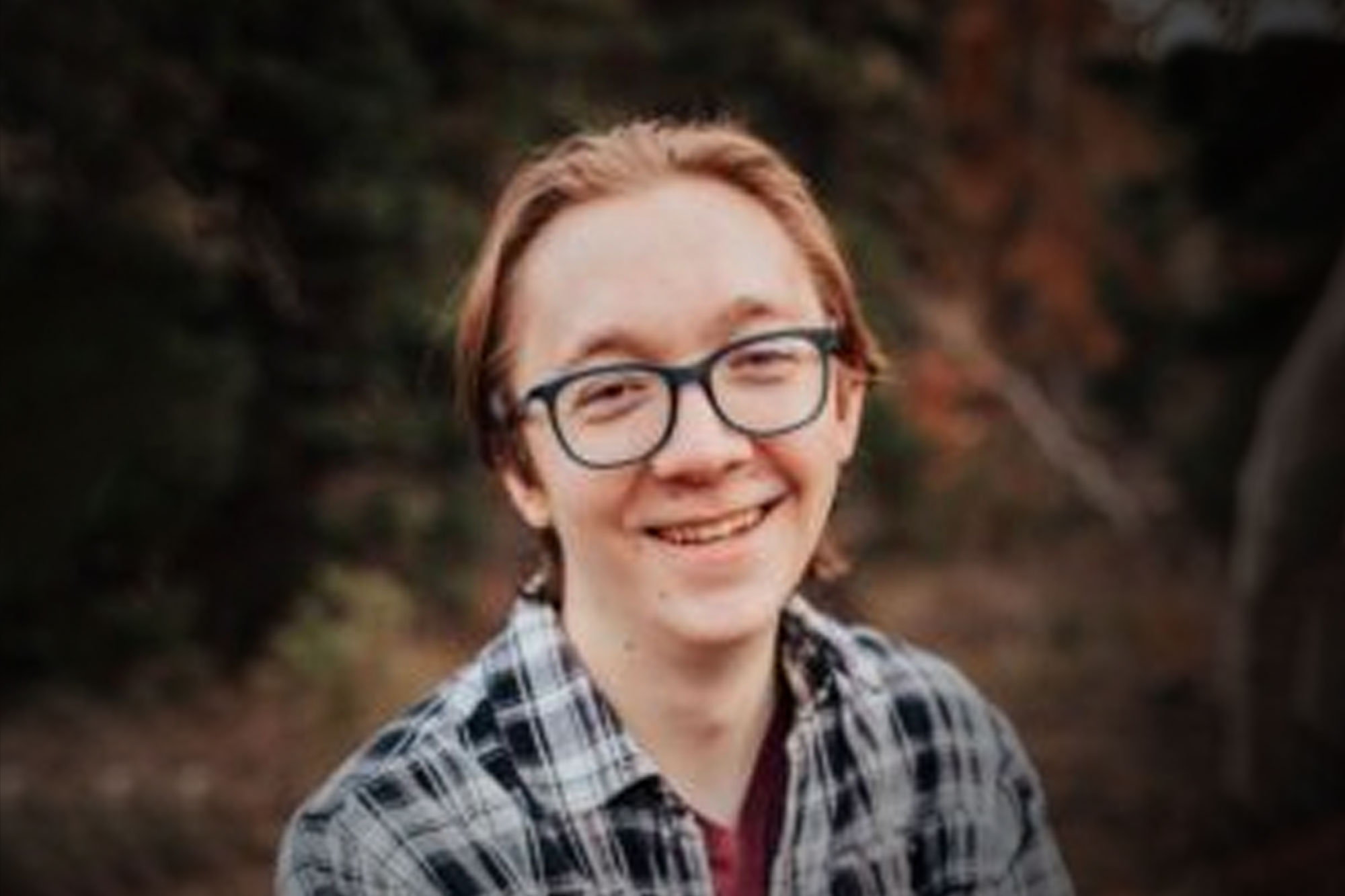
Ethan Lame is a junior majoring in physics, with an emphasis in astronomy and astrophysics. As a sophomore, he participated in the Science Research Initiative (SRI) program, sponsored by the College of Science. The SRI puts students in a lab to do research as soon as they arrive on campus. After Ethan was admitted to the program, he began working with Anil Seth, associate professor, in the Department of Physics & Astronomy.
We caught up with Ethan for a chat.
How did you become interested in astronomy and astrophysics?
For as long as I can remember, I’ve always been fascinated with space and the mysteries that are out there waiting to be discovered. As a child, I always enjoyed learning cool facts about the planets and stars, and as I learned more and more about the universe, I realized there’s just more and more to learn. I really started becoming interested in physics during my junior year of high school, when I took AP Physics C: Mechanics, where I studied Newtonian mechanics with a wonderful teacher. That’s when I really fell in love with physics.
Could you tell us about the kind of research you did in the SRI program with Dr. Seth?
Working with Dr. Seth, I mostly did theoretical research, using code (Python, specifically) that takes past telescope data of star clusters to predict the outcomes of observations that will be done in the future with the Rubin and Roman telescopes. The Vera C. Rubin Observatory is currently under construction in Chile and will be capable of producing unprecedented astronomical data. The Roman Space Telescope is a NASA observatory designed to understand dark energy, dark matter, and search for exoplanets. By predicting the types of results that we could expect from these telescopes, we were able to figure out the best combination of light filters to perform those observations in, with the hope of being able to easily identify specific objects in the universe that would otherwise be hard to distinguish.
What do you enjoy about being at the U and in the Physics Department?
For me, the U is very close to home, so I’m able to see family more often than if I had gone far away for college. It’s also a beautiful campus, and not overwhelmingly large for me, so it’s perfect to walk from class to class. As a freshman, I could tell immediately that the physics faculty are very knowledgeable and passionate about their work. The professors aren’t just there to teach; they want to help students learn and understand. While I’m not involved in clubs or other activities, I still feel a sense of camaraderie with my classmates since many of us have taken the same classes together since freshman year.
What has it been like to work on your degree during the pandemic? How have you adapted?
Working on my degree during the pandemic has been especially challenging. I find that it’s easier for me to learn material when I’m in person and can connect with my peers and professors, so I’ve made every effort to stay healthy and attend in person when possible. Online classes have been unavoidable at times, so I’ve made sure to be willing to accept help from TAs and attend office hours when needed.
Any career plans?
After I graduate, I hope to find a full-time position in STEM. Nothing too specific right off the bat, as I’m definitely willing to explore my options and try different subfields. My long-term career plans are to find the specific field that I love working in most and to keep growing my skillset, especially in the computer-science domain. My work with Dr. Seth was my first real experience in coding that wasn’t for a class, and I loved the process of thinking about how to solve a problem—trying something out and then figuring out why it didn’t work—and ultimately becoming a better programmer in the process.
Do you have any hobbies or interests outside of physics?
My primary hobby outside of physics is solving Rubik’s cubes as fast as I can. I first learned how to solve one in the sixth grade, and I’ve gotten much faster since. Recently, that passion has been reignited, and I’ve been trying to learn all the algorithms (close to 80!) that one needs to learn to be consistently fast at solving it. I also love reading in general, but especially science fiction/fantasy novels. My current favorite author is N.K. Jemisin.
